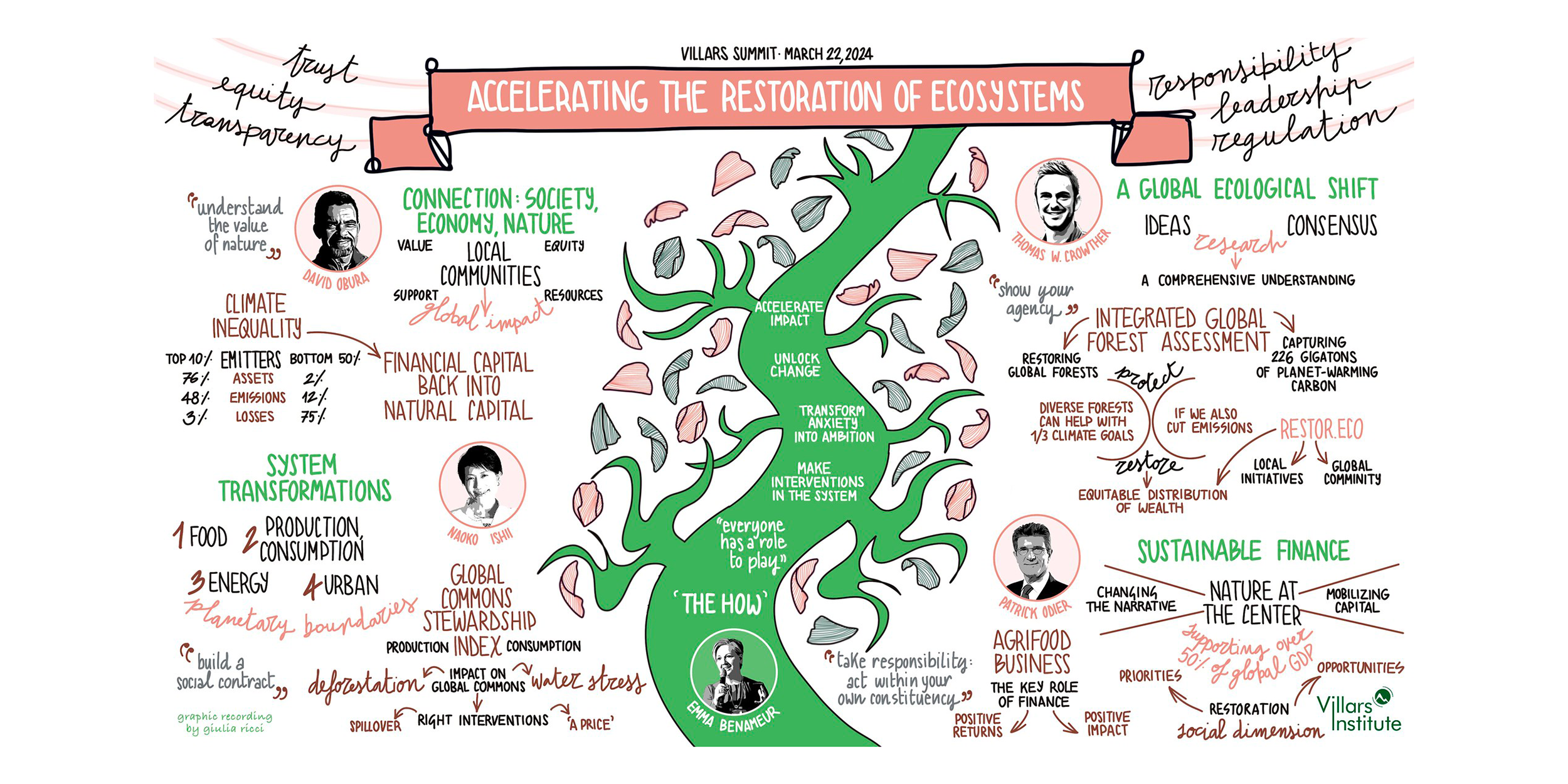The Ideas
The conversation started by highlighting the importance of nature, and how diverse ecosystems store 1/3 of the carbon dioxide in our environment. Participants expressed concerns about the impact of our current emission levels on our trees’ carbon potential. They emphasized the fact that forests do not come at the expense of agriculture and highlighted the lack of scientific information regarding nature's limits in terms of climate regulation, food production, water security, disease control, and sustaining the global economy.
Experts then took a more proactive approach by underlining how critical it is to have a global, comprehensive understanding of biodiversity. There is a need for consensus building to help politicians push the movement forward, thus creating a wider impact. Moreover, we must find the people on the ground who are already taking action and highlight their efforts to motivate us all. We need to protect the remaining healthy biodiversity and then restore what we have lost.
The discussion also delved into an economic perspective on this issue, and the necessary steps to address it. The key point is that we need to reform our economic system collectively. This requires considering both the demand and consumption sides and acknowledging the significant environmental strain caused by imports, particularly food imports. By doing so, policymakers can develop appropriate interventions and global measures to tackle the issue of ecosystem restoration.
The experts discussed the theme of finance, emphasizing the importance of changing the narrative and mobilizing capital, as nature serves as "the invisible engine of our economy." They highlighted the increasing recognition of the critical role of nature in the financial sector, with consumers starting to understand the benefits of ecosystem restoration. However, the finance industry needs to reposition itself and direct more capital towards restoration. Experts also emphasized the straightforward risk and return perspective. To conclude, experts highlighted the need to shift financial capital back to natural capital, considering the history of over-extraction from nature.
The Perspectives
Participants further emphasized the social aspect of the move to accelerate restoration of ecosystems, which is sometimes forgotten. This means always considering the impact on society and recognizing the value of nature for people everywhere. They also expressed interest in finding simple and tangible solutions which could be implemented in everyday lives. The focus was on making sacrifices and changes in as many ways as possible in our local communities. There was an emphasis on the fact that while local change may seem inconsequential or trivial, it can actually have a cumulative effect which makes meaningful global impacts.
Another point made by the participants was a transition from anxiety to ambition. Participants pointed out that it is easy to enter into a negative spiral surrounding disappointing climate crisis statistics, but that spending too much time lamenting on what has not been done is not beneficial, and that alternatively, time should be spent planning and thinking about what to do. They also emphasized that on top of planning about what to do, things actually need to be done. This theme of action was apparent throughout, in the context of the lack of action of government, entrepreneurs, and civilians alike.
To conclude, the participants agreed strongly with the warnings, explanations, and advice put forth by the experts, such as the important role of policymakers, and governments in making changes, and how taking action in elections can dictate this, as well as the importance of finance and economics in taking action towards a more sustainable future. On top of these inputs from the experts, the participants proposed their own unique contributions, such as the need for tangible, local solutions, as well as the necessity of maintaining focus on the three key components integral to restoring ecosystems: economy, society, and nature. Despite the lack of action taken in recent years, this discussion, surrounding how to accelerate the restoration of ecosystems, inspired change and put forth a feasible and efficient plan to make an immensely positive environmental impact.



